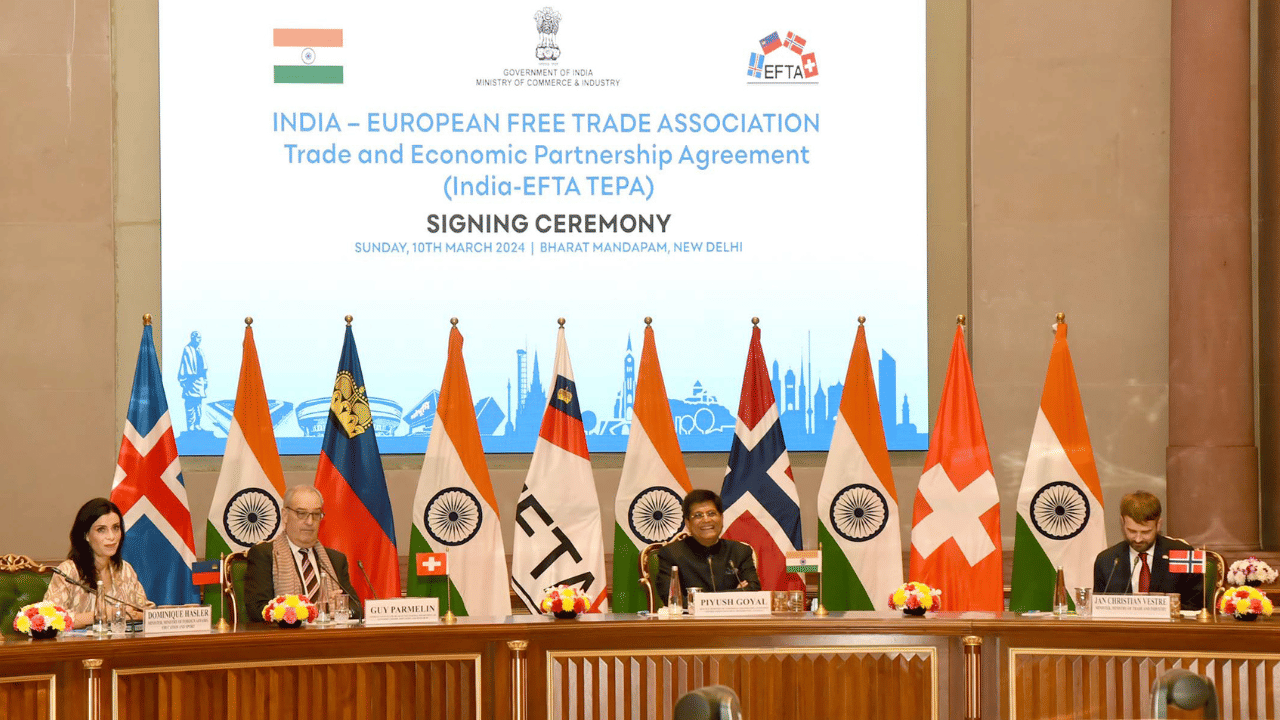New Delhi: India is set to implement its TEPA (Trade and Economic Partnership Agreement) pact it has signed with 4 nation bloc European Free Trade Association (EFTA). The implementation date is set as October 1 2025. The TEPA is India’s first such agreement with any european grouping. The EFTA groupoing includes countries of Switzerland, Norway, Iceland, and Liechtenstein.
India-EFTA Trade Deal
The Government of India, on March 2024, has signed the pact with four nation european bloc. However the implementation faced some delays due to procedural clearances in member states. Government officials said the launch aims to ensure that industry stakeholders are aware of its provisions and ready to benefit from them as reported by Business Standard.
TEPA is distinctive in India’s trade policy, as it directly links market access with investment commitments. As per the agreement, India will reduce tariffs on 80-85 percent of imports from EFTA countries, whereas the exporters in return will get duty-free access to 99 percent of goods in European markets. Sectors such as agriculture and dairy have been exempted due to political and economic sensitivities.
USD 100 billion investment in India
The central feature of the TEPA deal is the investment commitment. EFTA countries have committed to channel $100 billion into India over 15 years, the first $50 billion in the first decade and another $50 billion in the following five years. The government estimates this could generate one million jobs, thereby boosting industrial growth and employment.
The current trade of India with EFTA countries is skewed and tilted towards the European bloc. The EFTA imports are far higher at USD 22 billion, in which Switzerland alone accounts for 97 percent of the total trade, whereas the Indian export is just at USD 1.97 billion, thereby leaving India with a trade of USD 20.47 billion.
The new deal gains may be limited to India in the shorter run. However, the deal is significant, as it is India’s first deal with any European bloc. It reflects a strategic shift in New Delhi’s approach, moving beyond tariff reductions to secure large-scale investments aimed at long-term economic growth and job creation.
